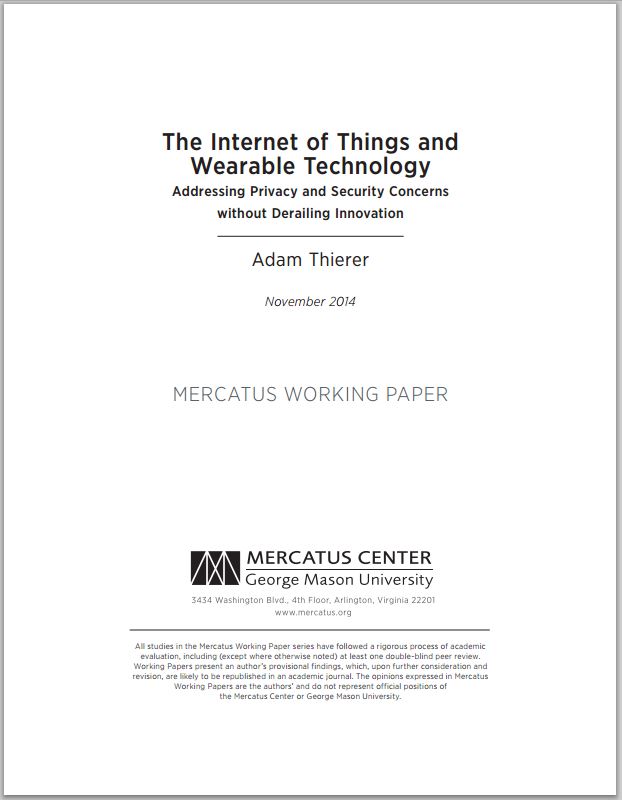Over the course of the year, I collect some of my favorite (and least favorite) tech policy essays and put them together in an end-of-year blog post so I will remember notable essays in the future. (Here’s my list from 2013.) Here are some of the best tech policy essays I read in 2014 (in chronological order).
- Joel Mokyr – “The Next Age of Invention,” City Journal, Winter 2014. (An absolutely beautiful refutation of the technological pessimism that haunts our age. Mokry concludes by noting that, “technology will continue to develop and change human life and society at a rate that may well dwarf even the dazzling developments of the twentieth century. Not everyone will like the disruptions that this progress will bring. The concern that what we gain as consumers, viewers, patients, and citizens, we may lose as workers is fair. The fear that this progress will create problems that no one can envisage is equally realistic. Yet technological progress still beats the alternatives; we cannot do without it.” Mokyr followed it up with a terrific August 8 Wall Street Journal oped, “What Today’s Economic Gloomsayers Are Missing.“)
- Michael Moynihan – “Can a Tweet Put You in Prison? It Certainly Will in the UK,” The Daily Beast, January 23, 2014. (Great essay on the right and wrong way to fight online hate. Here’s the kicker: “There is a presumption that ugly ideas are contagious and if the already overburdened police force could only disinfect the Internet, racism would dissipate. This is arrant nonsense.”)
- Hanni Fakhoury – “The U.S. Crackdown on Hackers Is Our New War on Drugs,” Wired, January 23, 2014. (“We shouldn’t let the government’s fear of computers justify disproportionate punishment. . . . It’s time for the government to learn from its failed 20th century experiment over-punishing drugs and start making sensible decisions about high-tech punishment in the 21st century.”)
- Carole Cadwalladr – “Meet Cody Wilson, Creator of the 3D-gun, Anarchist, Libertarian,” Guardian/Observer, February 8, 2014. (Entertaining profile of one of the modern digital age’s most fascinating characters. “There are enough headlines out there which ask: Is Cody Wilson a terrorist? Though my favourite is the one that asks: ‘Cody Wilson: troll, genius, patriot, provocateur, anarchist, attention whore, gun nut or Second Amendment champion.’ Though it could have added, ‘Or b) all of the above?'”)



 The Technology Liberation Front is the tech policy blog dedicated to keeping politicians' hands off the 'net and everything else related to technology.
The Technology Liberation Front is the tech policy blog dedicated to keeping politicians' hands off the 'net and everything else related to technology.